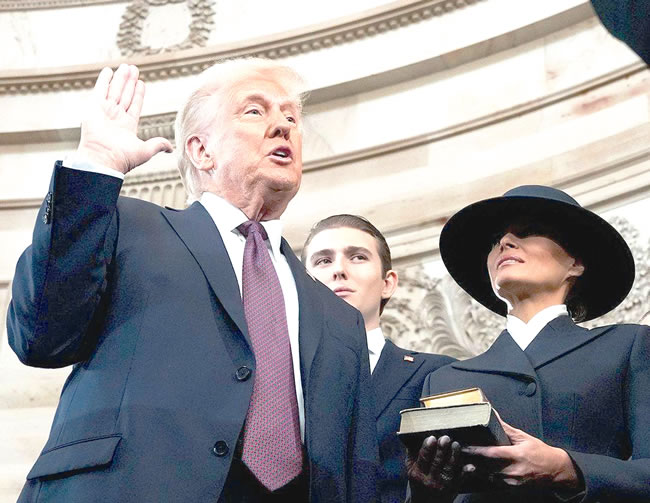Reviewing Trump’s first term
Trump’s first tenure (2017–2021) was characterized by disruption and polarization, both domestically and internationally. His administration delivered tax cuts, deregulation, and a pro-business agenda that spurred economic growth but faced criticism for favoring corporations and the wealthy. His hardline immigration policies, including the travel ban and family separations at the U.S.-Mexico border, sparked international condemnation.
On the global stage, Trump’s “America First” approach led to strained relations with allies, withdrawal from key international agreements like the Paris Climate Accord and the Iran Nuclear Deal, and heightened tensions with China through trade wars. While some hailed his unorthodox style, such as historic meetings with North Korea’s Kim Jong-un, others viewed his actions as destabilizing and unpredictable. Domestically, his rhetoric and governance style deepened partisan divides, reshaping the political landscape.
Implications for the global stage in Trump’s second term
Trump’s second term will likely amplify his nationalist and protectionist policies, with significant implications for global trade, alliances, and geopolitical stability.
Global trade and economics
Trump’s focus on boosting American industries and reducing reliance on foreign economies may lead to renewed trade disputes, particularly with China. This could disrupt global markets and impact supply chains, especially for emerging economies dependent on exports to the U.S. His push for U.S. energy independence could also reshape global oil markets, challenging oil-exporting nations like Nigeria.
Foreign policy and alliances
Trump’s skepticism of traditional alliances such as NATO and his transactional approach to diplomacy may strain relations with allies. In the Middle East, his continuation of pro-Israel policies and a hardline stance on Iran could further alter regional dynamics, while his unpredictable stance on Russia and Ukraine could impact NATO’s strategy.
Climate and environment
A retreat from global climate agreements and a focus on fossil fuels over renewable energy could slow international efforts to combat climate change, creating tensions with nations prioritizing environmental policies.
Technology and Security
Trump’s measures against Chinese tech companies and emphasis on cybersecurity will likely intensify global tech rivalries, impacting international innovation and cooperation.
Potential Impact on Nigeria
Trump’s second term poses both opportunities and challenges for Nigeria. His focus on energy independence and boosting U.S. oil production could lead to lower global oil prices, threatening Nigeria’s oil-dependent economy. As oil accounts for a significant portion of Nigeria’s revenue, this could exacerbate fiscal challenges, including rising debt and inflation.
Trade relations may also face strain, as Trump’s protectionist policies could limit Nigeria’s access to U.S. markets. Also, stricter immigration policies might impact Nigerian diaspora communities, reducing remittances that are vital to Nigeria’s economy.
President Bola Tinubu has expressed confidence in strengthened U.S.-Nigeria relations, particularly in areas like trade and military cooperation. However, concerns persist over potential cuts to foreign aid, which could impact health and development programs in Nigeria.
A defining moment for the global order
As Trump’s second term begins, the world faces a period of uncertainty. His leadership style and policies are likely to challenge traditional systems and alliances, prompting nations to adapt to shifting dynamics. For Nigeria and other developing countries, the task will be to navigate these changes while protecting their economic and strategic interests. Whether Trump’s return fosters global prosperity or deepens instability, his presidency will undoubtedly shape the international order for years to come.
READ ALSO: UPDATED: Donald Trump sworn in as 47th US President
